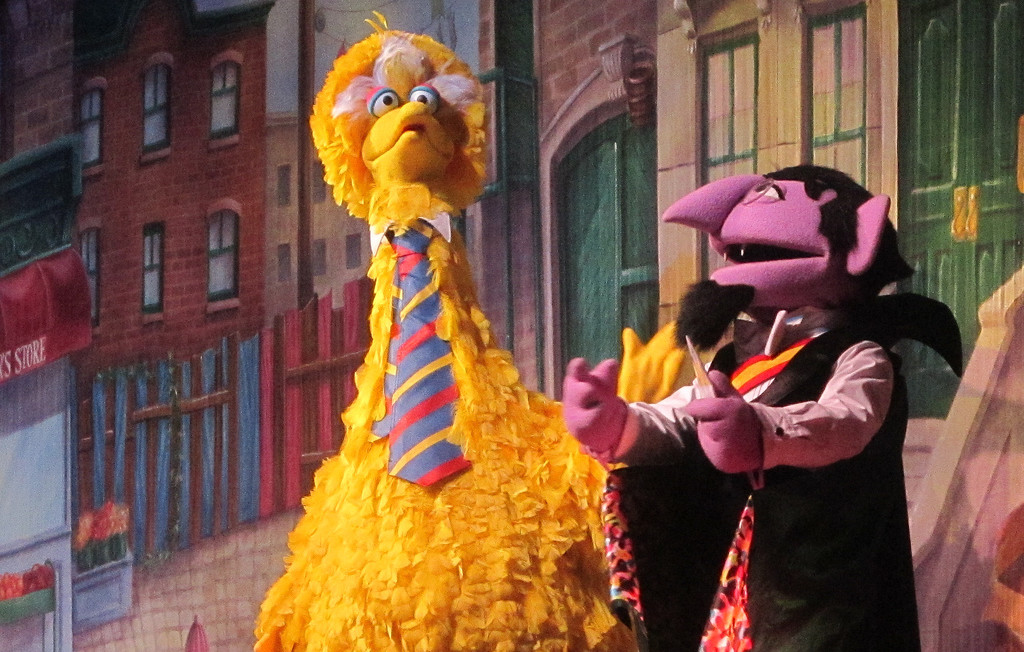Mitt Romney emerged from last week’s debate the undisputed champion and the owner of a substantial bounce in the polls, but he was almost upstaged by an eight-foot tall bird. Romney pledged – while professing his love for Big Bird and debate moderator Jim Lerher – to cut funding to PBS as part of an effort to reduce the federal budget deficit. Big Bird became a trending topic on Twitter, and the bird himself made a guest appearance on Saturday Night Live.
One clarification: a Romney administration wouldn’t cut funding to PBS, it would cut funding to the Corporation for Public Broadcasting (CPB). The CPB was created by the Public Broadcasting Act of 1967, signed by President Lyndon Johnson, and is a private organization with a nine-member board appointed by the president. The act states that “it is in the public interest to encourage the growth and development of public radio and television broadcasting, including the use of such media for instructional, educational, and cultural purposes.” The CPB helped create NPR and PBS, and directs federal funds to these organizations and the many member stations and organizations that participate in public broadcasting.
The federal allocation for this fiscal year to the CPB is $445 million, which is 0.00012 percent of the federal budget. In an era of troubling deficits, every government program should be evaluated. But funding for public broadcasting is such a miniscule part of the budget that it’s hard to take a candidate seriously who thinks that cutting off the CPB is an important policy initiative. Romney was throwing some red meat to his conservative base, which has a long history of criticizing PBS and NPR as bastions of liberalism. In fairness, Romney is not the first politician to pander, and it’s hard to argue that President Obama’s fixation of the corporate jet tax loophole wasn’t a similar ploy to whip up members of his own party.
Ending the CPB would not mean an end to PBS, NPR, or Sesame Street. Only 11 percent of funding for public radio stations and 15 percent of funding for public television stations comes from the federal government. The best argument for eliminating the federal role in public broadcasting would be to spare NPR and PBS from having to defend themselves against Congress every few years. But some have argued that removing the federal subsidy would disproportionately hurt particular areas of the country. While PBS chief executive Paula Kerger has an interest in maintaining funding for her organization, it’s hard to be dismissive when she states that “stations in rural parts of the country, where their parts of the federal funding is 40, 50, 60 percent, those stations will go off the air.” Some argue that public broadcasters could find a way to make up for the shortfall, but it’s hard to believe that the loss of millions of dollars wouldn’t be felt in some areas.
President Johnson’s Great Society programs, including the Public Broadcasting Act, solidified the idea that the federal government could play a substantial role in promoting equality in America. The Public Broadcasting Act includes phrases explaining that the bill “will constitute an expression of diversity and excellence,” “addresses the needs of unserved and underserved audiences,” and “will most effectively make public telecommunications services available to all citizens.” A libertarian might argue that if there is enough demand in a community for public broadcasting, that community will find a way to pay for it. But this argument ignores how much impact a small investment by the government can have on the creation of better, and hopefully equal, opportunities. Many of the areas that would lose PBS and NPR if budgets were cut probably have the greatest need for public broadcasting. There have been scientific studies that purport to show the educational benefits of public television. But a poignant anecdotal example from New York Times columnist Charles M. Blow best captures the value of public broadcasting:
We were poor. My mother couldn’t afford day care, and I didn’t go to preschool. My great-uncle took care of me all day. I could watch one hour of television: PBS. … These are places with no museums or preschools or after-school educational programs. … There wasn’t money for travel or to pay tutors. I honestly don’t know where I would be in the world without PBS.
At $1.35 per person per year, public broadcasting is a worthy investment.
